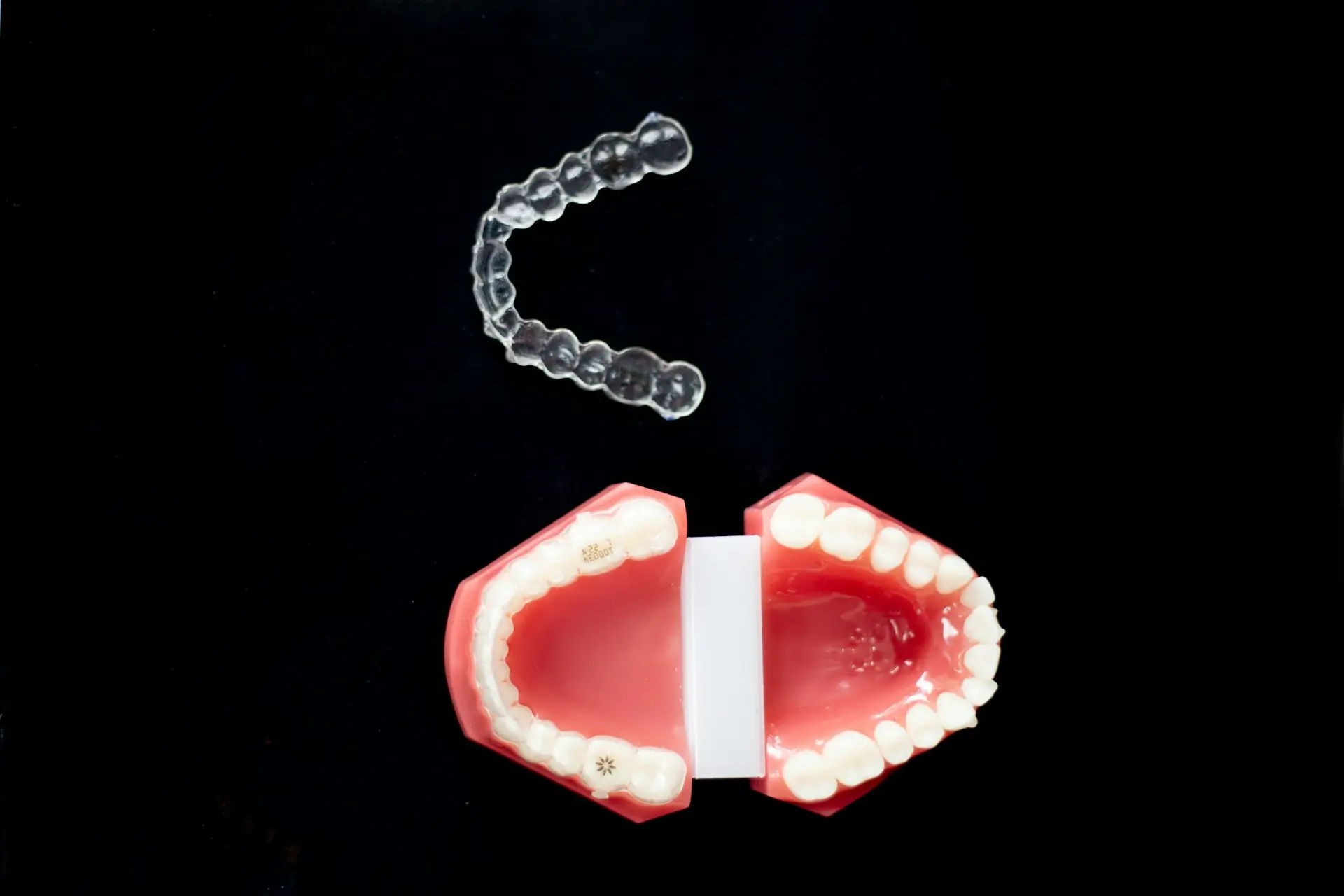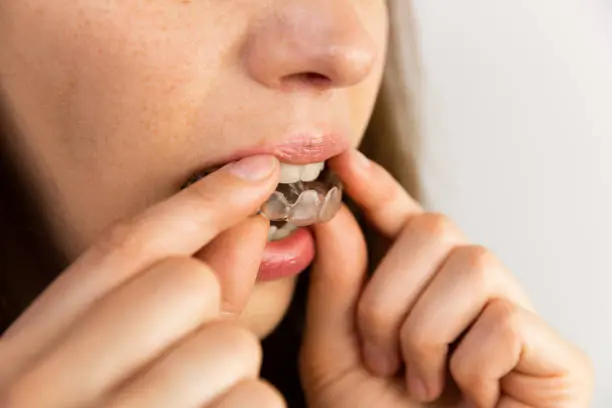Night Guards
Night guards, also known as dental guards or occlusal guards, are protective devices worn in the mouth to prevent or reduce the adverse effects of teeth grinding (bruxism) and clenching, which often occur during sleep. They are also used to protect existing dental work and manage temporomandibular joint disorders (TMD). Made of a durable, comfortable plastic material, nightguards fit securely over your teeth to absorb the force of clenching and grinding. This helps prevent tooth wear, fractures, and other damage that can occur from the excessive friction and pressure of bruxism.
Gallery
Visual insights to help you understand what to expect from your treatment. For more content, please refer to our Education Hub.

Benefits & Considerations
Everything you need to know to make an informed decision about your treatment.
Benefits
Prevent Tooth Damage
Chronic teeth grinding can lead to chipping, surface wear, and even fracturing of the teeth. Night guards provide a protective barrier to minimise this damage.
Reduce Jaw Tension and Pain
By cushioning the muscles in the jaw, night guards help reduce the strain that can lead to pain and long-term issues like TMD.
Better Sleep Patterns
With less tension and pain, individuals may encounter fewer disturbances throughout the night, leading to more restful sleep. Some night guards are specifically designed to keep the airway open by positioning the jaw slightly forward, thereby helping to prevent snoring and improving breathing during sleep.
Protect Dental Restorations
For those with crowns, bridges, or implants, night guards help protect against forces that can damage these treatments.
Headache Management
Bruxism often leads to tension headaches and migraines. By using a night guard, the frequency and intensity of these headaches can be reduced, since it helps relax the jaw muscles and decrease the strain that contributes to headache pain.
Cost Saving
By protecting your teeth from the extreme forces of clenching and grinding, night guards can help you avoid the need for costly dental repairs such as crowns, bridges, implants, and root canals in the future.
Considerations
Temporary Discomfort
Some people may experience discomfort or pain when they first begin wearing a night guard. This usually diminishes as one gets used to wearing it. If the discomfort persists, the night guard might need to be adjusted or remade by the dentist.
Increased Salivation or Dry Mouth
Wearing a night guard can lead to increased salivation for some people, while others might experience dry mouth. These symptoms typically decrease as the wearer adjusts to the presence of the night guard.
Oral Hygiene
Night guards can contribute to decay and oral infections if not cleaned properly, as bacteria and plaque can build up on the guard. It's crucial to maintain good oral hygiene by cleaning the night guard regularly and keeping both the night guard and your teeth clean.
Poor Fit
If a night guard is not fitted properly, it can cause or exacerbate jaw pain and tooth discomfort. A poorly fitting night guard might also move around in the mouth, which can lead to irritation of the gums and oral tissues.
Treatment Procedure
Let's walk through your treatment procedure from start to finish.
Initial Consultation & Examination
Your dentist will assess your teeth, gums, and jaw to determine if a hard night guard is suitable for your needs. This assessment may also involve discussing your symptoms and any prior history of teeth grinding or jaw pain.
Intraoral Scans
If a hard night guard is chosen, the dentist takes impressions of your upper and lower teeth. These impressions are made with digital scanning technology.
Fabrication
The impressions or digital scans are used to create the night guard in-house within our dental laboratory using specialised design software, as well as either 3D printing or 5-axis milling to ensure the guard fits precisely over your teeth, providing maximum protection and comfort. MODJAW technology is utilised to ensure comfort and safety in performing dynamic jaw movements such as protrusion, lateral excursions, chewing, and speech.
Fitting & Adjustments
The fabricated night guard is tested on a dental model of the mouth, followed by the actual patient. Any necessary adjustments are made to ensure optimal comfort and non-interference with your bite.
Post-Operative Care
Simple steps to protect your smile and ensure optimal results in the days following your procedure.
Night Guard Hygiene
Brush the night guard with a toothbrush and toothpaste after each use. Alternatively, mouthwash or soap and water can be used followed by thorough rinsing.
Night Guard Storage
Store the night guard in a ventilated container to prevent moisture buildup, which could lead to bacterial growth. Do not expose the night guard to heat (e.g., hot water, direct sunlight), as it may warp and lose its shape.
Regular Checks
Bring the night guard during dental visits to ensure it’s still in good condition and fitting properly. Over time, they can wear down and may need replacement.

Using a night guard correctly can significantly mitigate the harmful effects associated with nocturnal teeth grinding and clenching. If you suspect you are grinding your teeth at night or experience jaw discomfort, consulting with a dentist to discuss whether a night guard might be right for you is a wise step.